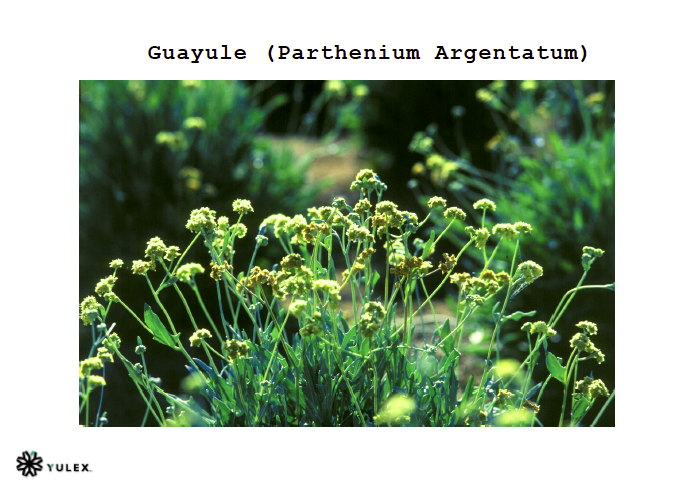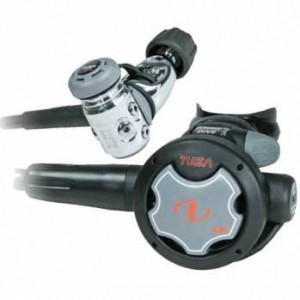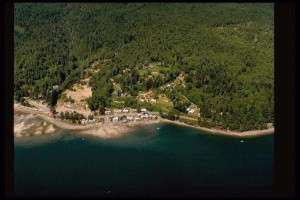
Weed-Infused Wetsuits ?
Patagonia’s New, Weed-Infused Wetsuits?

One would think the surf industry would already be at the forefront of environmentally conscious practice—after all, sand and sun already seem to have an inherently eco-friendly sheen about them. Yet most wetsuits are made of neoprene, a decidedly anti-green material that is both petroleum-based and nonrenewable.
Patagonia, the outfitter of all things outdoorsy, and also guilty of manufacturing neoprene suits, recently decided to take a hard look at their own offerings, introducing a revamped wetsuit comprised of 60 percent “biorubber” and only 40 percent neoprene (hey, it’s a start). This natural biorubber, made by biomaterial manufacturer Yulex, is derived from guayule, a desert shrub that grows in the American southwest and doesn’t require much water to thrive.
Patagonia hopes to encourage their competitors to adopt biorubber into their own products, so that not only can the use of neoprene eventually be eliminated but also, as the market grows, the consumer cost for these eco-conscious wetsuits can decrease—currently one will set you back between $529 and $549. Ouch.
Apparel companies have been tossing more muscle behind material innovation, maybe in a nod to our planet or possibly just in response to the increasing consumer interest in the story behind their clothes, but price point has consistently been an issue. Sure, most people support or want to support a greener lifestyle, but what if their budgets just can’t handle it?
To what degree will they open their wallets to match their ideals? Time will tell how well Patagonia’s guayule wetsuit will fare in the market, but to nudge surfers into buying biorubber, a well-placed weed joke in one of their fall advertisements probably doesn’t hurt either.
 © Mat McDermott
© Mat McDermott
Right now surfers can buy wetsuits made from greener versions of neoprene, but none of these really can be considered a truly green product. Now, Patagonia has announced a potential large step forward on this front: Producing the first wetsuits in the world made from a plant-based alternative to neoprene.
The Ventura, California-based company has partnered with Yulex Corporation to make wetsuits using guayule, “a renewable, non-food crop that requires very little water, is grown domestically in the US, uses no pesticides, and in comparison to traditional neoprene, has a very clean manufacturing process.”
Patagonia surf director Jason McCaffrey:
After four years of working together, Patagonia and Yulex have co-developed a unique material [photo above] that allows us to make a wetsuit that is 60% guayule based. Our goal is to have the formula be 100% plant-based, but we feel that for now this new material is a big enough step forward to let the world know it is possible to buy something clear. It’s our hope that other brands see this as interesting and join the effort to innovate and implement alternatives to traditional neoprene.
The wetsuits are slated to roll out in Japan, and this spring you’ll be able to order them custom from Patagonia. A global roll out will follow.
Haven’t heard of guayule? Don’t feel bad, I had to look it up, too.
 USDA/Public Domain
USDA/Public Domain
Guayule’s scientific name is Parthenium argentatum. A flowering shrub in the aster family, native to the southwest part of the United States and northern Mexico, it’s been used as alternative to latex rubber since pre-Columbian times, with its modern common name coming from the Nahuatl word for rubber.
Wow I think we will see this simple yet complex process grow in the next few years, because we need to push away from the petroleum based products. Thanks for reading my blog and I hope you will think green as we here at Scubahappy.com do.
Thanks to Patagonia’s for the photos and the Information for this article. Weed-Infused Wetsuits, absolutely brilliant idea.
also a Thanks to treehugger.com blog and GOOD magazine for the wonderful photos and the research information used for this article. Good Job Guys.
Thanks, Greg at Scuba Happy
 ©
© 

